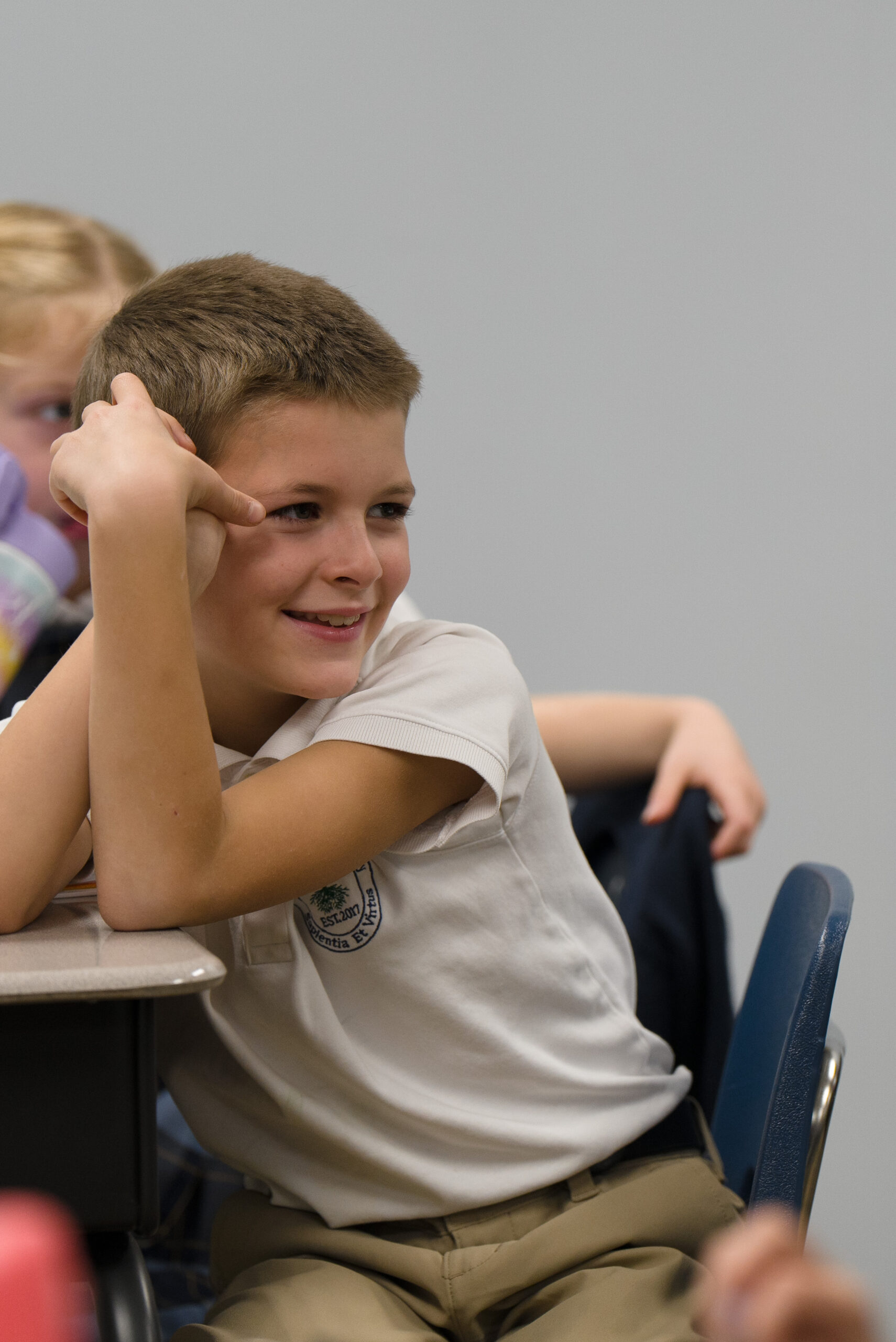University Schedule
The benefit of a one-on-one parent tutor and communal classroom learning…
Education is both individualized and classroom oriented. Students receive the benefits of a one-on-one tutor and communal classroom learning. There is one joint curriculum between school and home.
Education that is life-giving and reviving
Organized to get the very most out of the traditional school setting
On Campus School Day
Pre-K
8:00am-1:00pm
K-12th
8:00am-3:30pm
At Home School Day
K-12th
(Pre-K work is optional.)
On Campus School Day
Pre-K
8:00am-1:00pm
K-12th
8:00am-3:30pm
At Home School Day
K-5th
(Pre-K work is optional)
On Campus School Day
6th-12th
8:00am-3:30pm
At Home School Day
K-4th
Lighter academic day, interest-led learning
6th-12th
Full at-home school day
Lab Sessions
9th-12th
Students will attend approximately 6-8 lab sessions a year on select Fridays
University Schedule vs. Traditional Hours
Life-giving instead of life-taking
In a traditional 5-day a week classroom setting, a child spends 35-40 hours a week at school beginning in Kindergarten until graduation. However, the university-schedule provides a gradual transition to independent learning. Students educated in this setting have already experienced a college simulated work environment through their high school career and therefore make a seamless transition to college. University-schedule students gradually become more independent and self-motivated learners long before they leave their K-12 education. Whether students leave their K-12 education and go on to college, entrepreneurial business, or the work force, they are well equipped to handle all that life has to offer wherever God chooses to use them.

Benefits of a University-Schedule, Collaborative Education
Students can pursue hobbies, music lessons, sports, and other interests
Families enjoy more community and faith activities and less chaotic school evenings
Parents have more hours to disciple their children and closely track their academic development
Students are accountable to a professional teacher who is competent and passionate about the subject matter
Parents enjoy at-home academic days without the stress of curriculum & lesson planning
Students are given opportunities for leadership, group projects, and interaction with other children
Parents have the freedom to focus on a child’s individual needs and interests
Students still get to enjoy all the aspects of a school community such as class parties, field trips, school events, and music programs
This model is cost effective, making tuition rates accessible to more families
Students take responsibility for their own education over time, becoming more and more independent long before graduating
The Results
Nearly all schools utilizing this approach have been founded by like-minded educators and families desiring this model of education for their children. There are now over 200 registered schools across the nation that utilize this model, with new schools developing each year. Other names for this school concept include collaborative, hybrid model or blended model. The Classical Academy is accredited through the Association of Classical Christian Schools (ACCS) and is an approved NCAA high school program.
University-schedule, collaborative schools have consistently produced National Merit Semi-Finalists, National Merit Finalists, and graduates who succeed at the most rigorous and selective universities. Graduates from these schools have attended top colleges and graduate schools across the country. In addition to academics, a comparative study was conducted on the seven life outcomes of classical, Christian graduates showing that indeed a classical Christian education can influence the course of a home, a community, or a nation. To see the full study, visit The Good Soil report.
